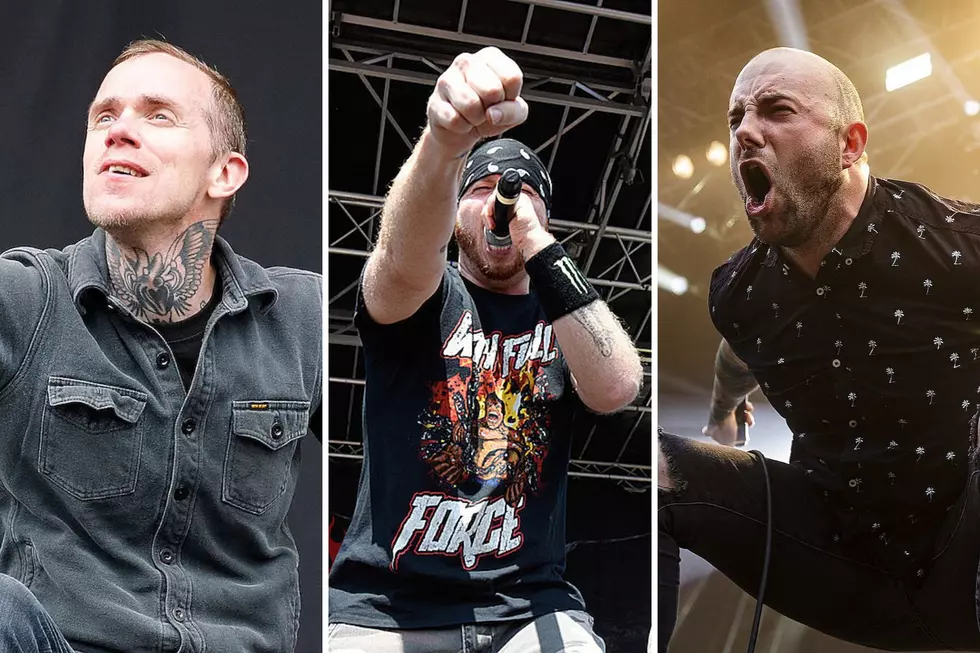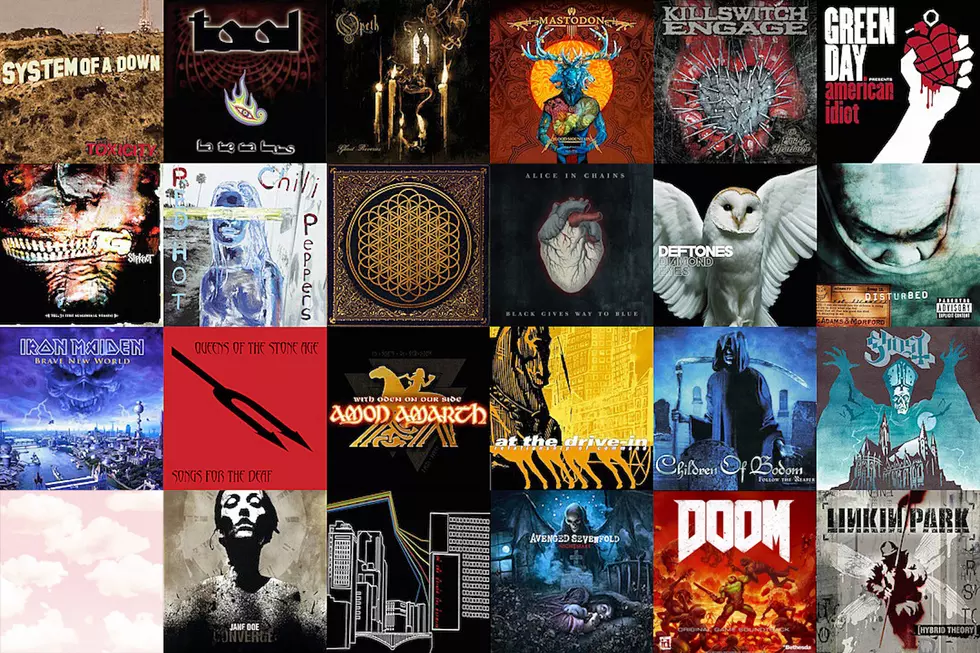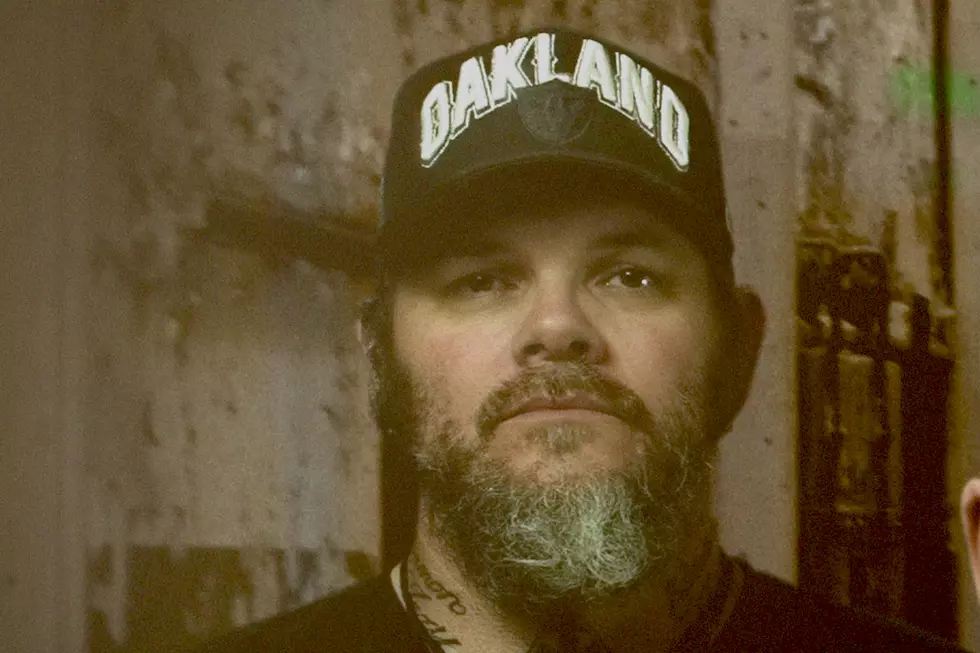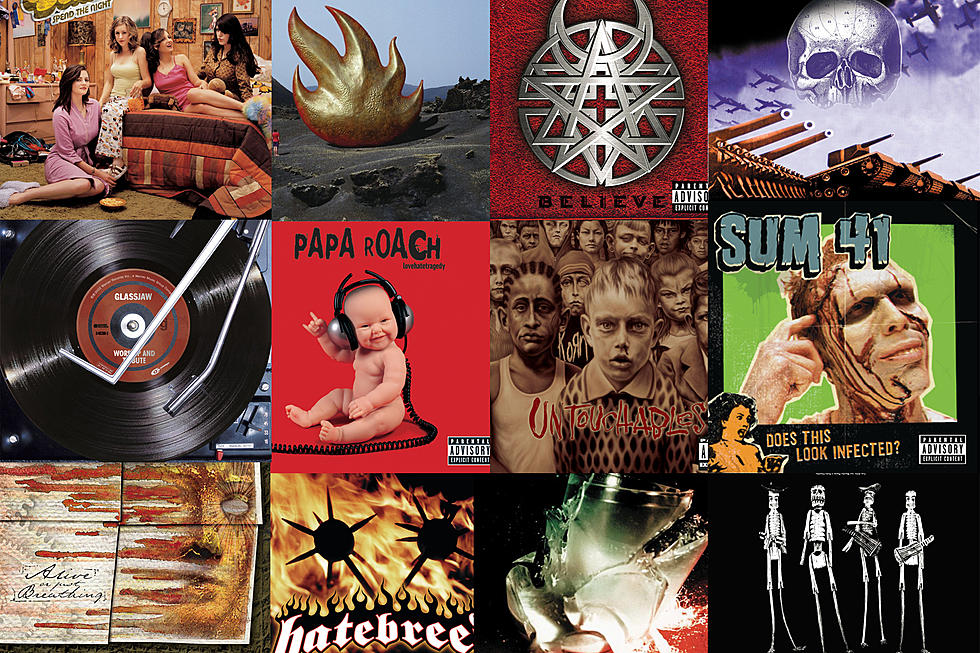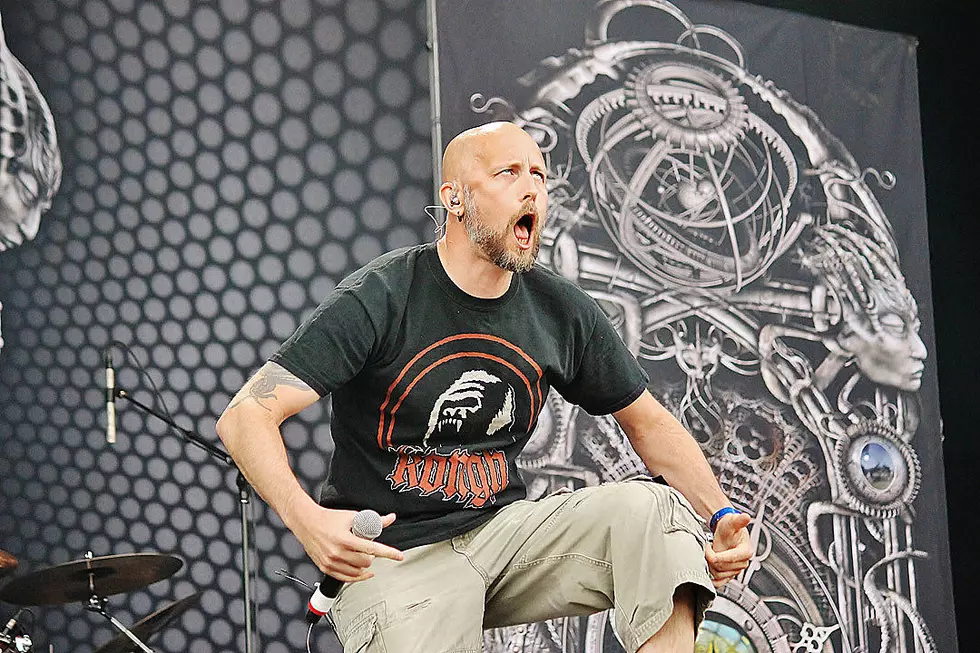
Prurient is Noise, ‘Not Entertainment’ — Exclusive Interview
Since the late '90s, Dominick Fernow a.k.a. Prurient has been creating some of the most extreme and challenging noise music to come out of New York City. While there's no such thing as a typical Prurient recording, a number of key tracks feature piercing, wildly out-of-control feedback and distorted, downright painful sounds that could make any black metal fan reach for the volume knob. On the other end of the sonic spectrum, Prurient's moodier pieces often consist of low, sustained drones and spoken word vocals.
Fernow runs his own record label, Hospital Productions, which also doubles as a specialty record store in Manhattan's East Village. After releasing dozens of recordings on Hospital and other limited-run underground labels, Prurient's next full-length, 'Bermuda Drain,' will be released by Hydra Head, the LA label responsible for albums by Neurosis, Pelican, Isis, Converge, and Xasthur. In this exclusive interview with Noisecreep, Fernow discusses his progression from teenage underground metal fan to noise artist, the effects of treble frequencies on the human body, and the inspiration behind the latest Prurient 7" single, 'Many Jewels Surround the Crown,' out on April 16th, Record Store Day.
Noisecreep: You were a fan of underground metal as a kid. How did you move from that into the noise world? Do you remember when you first became interested in noise, as something to listen to and as something to make?
Dominick Fernow: I started making noise when I was 16 in high school. I didn't know what noise was at the time, but I was making it. I was totally entrenched in the underground death metal demo culture of the early '90s and was continually looking for the most extreme thing. I was never really a music fan in the traditional sense until I heard death metal. I just listened to whatever pop music I was exposed to from my friends and family. Considering the time that I grew up in, that means Aerosmith's 'Get a Grip,' Red Hot Chili Peppers' 'Blood Sugar Sex Magik" and the ultimate evil rock record 'Core' by Stone Temple Pilots.
Some friends of mine in 8th grade invited me over to their house to watch their death grind band practice. Upon the first few moments of them rehearsing, my entire world was turned inside out, and I was thrown headfirst in to the underground death metal scene at the time. As a Catholic school Midwestern teen, I never knew sound could feel like that. I skipped all of the transitional music that anyone would associate with underground culture. I had never heard Dead Kennedys, Joy Division, Black Flag, Metallica, Slayer or any of the classic "gateway" bands.
The Internet existed but wasn't commonplace, and I didn't have a computer or Internet at the time, so finding out about music was a totally personal experience that required effort and thirst. I feel fortunate to be part of the last generation that experienced the true pre-internet underground.
I had heard about something called "industrial" music and thought that it literally meant the sound of machines. All my friend and I were able to find at the time was essentially dance music with guitars. He had a primitive computer program and we decided that we were going to make what we thought industrial music should sound like. His stuff basically became techno and my stuff basically became noise.
I was unaware of the entire "noise" genre until sometime later when I was at a friend's house playing some of our tapes, and an older family friend heard them and started to talking to me about noise music, made by the British and the Japanese. I heard Merzbow and thought it was interesting, but it wasn't until i heard Massona that my jaw hit the floor.
The two main things that intrigued me about noise that was different than any other genre, were that it was a "scene" that focused entirely on individual selfishness and made no attempt to fit into any category, let alone even coming off as music at all. And secondly, an emphasis on limited edition cassettes that were considered fully realized, legitimate releases that had a finite number of copies made. This was in contrast to the idea of the "metal demo" being copied and spread by fans worldwide and not necessarily the bands themselves.
What's a typical Prurient recording session like?
The only thing typical about a recording session of Prurient is that it is constantly changing. For example, the main criteria in recording the 'Bermuda Drain' album to begin with was that not a single piece of equipment, down to the pedals and microphones, could have ever been used on any previous Prurient record. The entire spirit of noise is about freedom and destroying boundaries. Anything can be a potential instrument. Laptops or number 2 pencils, synthesizers or plastic bags. I will never understand "noise" bands who go out of their way to make the same record over and over. It's this emphasis on genre that is the antithesis of the noise ideology. Oh, and lots of vocals.
What role do treble and harsh sounds play in your work?
"Harsh" is subjective. It implies sound that is undesirable. There is a lot of music that to me feels harsh that I doubt the creators intended it to be. However that isn't to say that the sounds used in Prurient are desirable. The purpose of Prurient is not entertainment. It may be "entertaining", but it's goal is not comfort or enjoyment. It's only purpose is to make you feel something, to make you aware of your body. That is why I often choose sounds which I dislike and make me feel uncomfortable. With discomfort comes awareness, and what follows are questions. What am I feeling and why?
In regards to "treble", we live in a bass-centric society, obsessed by words like "heavy" and "full". Treble communicates imbalance, tension and emptiness, because it hits the body in the ears, teeth, and forehead. When you approach this area, you are making sound personal. Bass affects the stomach and legs, and becomes more physical. By affecting the head and face, sound becomes more psychologically oriented. When we think of people we know, we think of their face first. The face is synonymous with identity. Prurient is personal and internal, and I hope to share that feeling with the audience by focusing on this area of the body.
How did you get involved with Hydra Head Records?
Mutual worship of '90s alternative mainstream rock.
The 'Many Jewels Surround the Crown' 7" has a noticeably more melodic sound than previous releases. Did anything influence the decision to go with a more structured and musical sound this time out?
The melody has always been there from the beginning in the form of collage and sampling. Then later on, with burying synth lines underneath the noise. With 'Many Jewels' and 'Bermuda Drain,' I simply reversed the pecking order. I have always been a fan of electronic music and in some way, have strived all along to make it.
Upon a recent tour of Europe, I was constantly listening to minimal techno on headphones, driving at night through tunnels, and exhausted all of the records I had brought with me. The album is meant to satisfy that feeling. I've always felt connected to landscapes, moving through them, and their linear nature. Time passing. Watching as the world rolls over you while being divorced from it. The visual essence of feedback is a thin line, just like the structure of the landscape.
Is touring and recording with Cold Cave your priority for now? [Fernow recently joined the band as a live keyboardist.] Do you have any plans for Prurient live shows this year?
I took time off from Prurient live in order to develop a new performance. I will start playing live again this year.
More From Noisecreep
